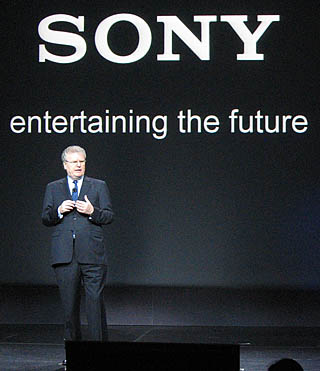
The Financial Times’ Lex posts on why Kleenex would be a better investment than Sony right now:
Sony forecast operating profits of $2.2bn for this fiscal year; but on Tuesday local media…reported it would lose $1.1bn. That would be Sony’s first since 1995, and implies an operating loss approaching $2bn in the second half.
Indeed, the red ink need not stop there. Average yen rates in the fiscal year-to-date hover around Y102/$1 and Y151/€1. Assume more recent rates of roughly Y90/$1 and Y120/€1 prevail next year and, on Sony’s methodology, almost $3bn would be scythed off operating income. On top of that comes, say, $1bn in restructuring costs from the elimination of 8,000 full-time workers, and the likelihood of growing debt and higher interest costs. Sony has net debt of around $5.5bn, after stripping out the financial services arm, and is burning through cash at an almost dot.com era pace.
Sony could ride through this if it made products people wanted to buy, but that does not appear to be the case. Take TVs. Amazon.com’s bestsellers are dominated by Samsung Electronics of South Korea; even China’s Haier has a model that ranks fifth. Sony’s first appearance is 18th. Japan’s Canon calls the shots when it comes to digital cameras, where Sony boasts just three spots – all towards the end – in the top 25. Unpopularity especially hurts when buyers are in retreat.
Indeed, an inventory build-up (equivalent to 57 days’ sales) suggests Sony’s move to raise prices in Europe is counter-intuitive. Such inventories may instead have to be written off, or prices discounted to shift product. Happy ending? Investors would be better off with Kleenex.
Another FT article points out that Sony is cutting fat from its flailing consumer electronics sector while investing in new TV technology. Its film and music businesses are stable enough, as is its software arm.
Sony has soft advantages in the fame and reputation departments. Working with populations familiar with that reputation–producers, creative types, gamers–by providing an expanded line of software offerings, for example, could serve Sony very well. Meanwhile, it could focus its electronics efforts on providing a few excellent niche products, like projectors.
Sony’s situation strikes me as one where there’s a lot to lose, but, thanks to diversification, also a lot to gain.
